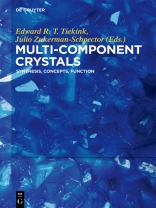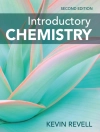In this volume, contributions covering the theoretical and practical aspects of multicomponent crystals provide a timely and contemporary overview of the state-of-the art of this vital aspect of crystal engineering/materials science. With a solid foundation in fundamentals, multi-component crystals can be formed, for example, to enhance pharmaceutical properties of drugs, for the specific control of optical responses to external stimuli and to assemble molecules to allow chemical reactions that are generally intractable following conventional methods.
Contents
Pharmaceutical co-crystals: crystal engineering and applications
Pharmaceutical multi-component crystals: improving the efficacy of anti-tuberculous agents
Qualitative and quantitative crystal engineering of multi-functional co-crystals
Control of photochromism in N-salicylideneaniline by crystal engineering
Quinoline derivatives for multi-component crystals: principles and applications
N-oxides in multi-component crystals and in bottom-up synthesis and applications
Multi-component crystals and non-ambient conditions
Co-crystals for solid-state reactivity and thermal expansion
Solution co-crystallisation and its applications
The salt-co-crystal continuum in halogen-bonded systems
Large horizontal displacements of benzene-benzene stacking interactions in co-crystals
Simultaneous halogen and hydrogen bonding to carbonyl and thiocarbonylfunctionality
Crystal chemistry of the isomeric N, N’-bis(pyridin-n-ylmethyl)-ethanediamides, n = 2, 3 or 4
Solute・solvent interactions mediated by main group element (lone-pair)・・・π(aryl) interactions
Mengenai Pengarang
Edward R. T. Tiekink, Sunway University, Malaysia; Julio Zukerman-Schpector, Universidade Federal de São Carlos, Brazil.












